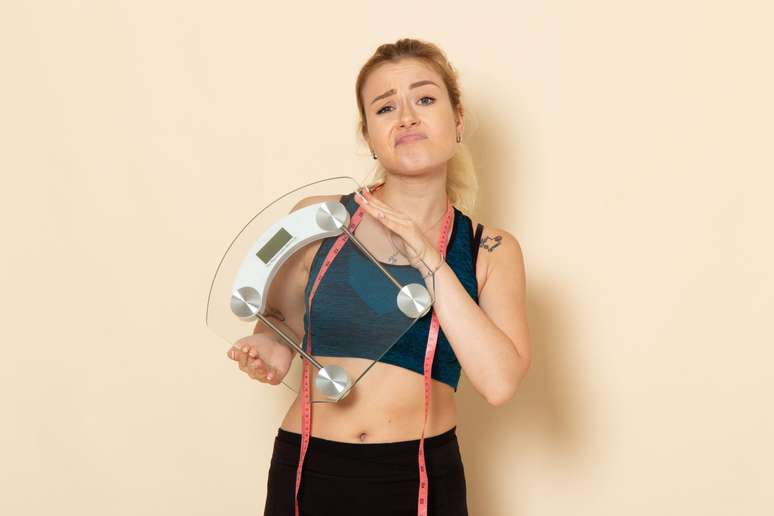IVF with frozen eggs or ovoreception can be an alternative to carrying a baby
In an interview with Quem Magazine, actress Deborah Secco, 44, spoke about her plans regarding motherhood. “Today I don’t see motherhood as a possibility. But I guess life is… One of the things I love most about myself is my ability to change my mind. I really prefer him to be a walking metamorphosis. Maybe in two months I will think differently,” said Deborah, who is already the mother of a little girl.
But delaying pregnancy too much can be a problem, because it is known that one of the factors that most affects the chances of a spontaneous pregnancy is the woman’s age.
“Women are born with a predetermined quantity of eggs, which over the years age, with a consequent decrease in their quality, starting to present more chromosomal changes and less energy to generate a healthy embryo. The chances of becoming pregnant then decrease considerably after the age of 35 and decrease extremely sharply after the age of 38 or 39. To give you an idea, while the probability of getting pregnant in one year of trying is 96% at 25 years old and 84% at 35 years old, at 40 years old this percentage drops to 55% and 35% at 43 years old” , points out Rodrigo Rosahuman reproduction specialist and clinical director of the Mater Prime clinic, in Sao Paulo.
But that doesn’t mean an older woman can’t get pregnant. In these cases, human reproductive techniques can help.
“In vitro fertilization (IVF) is one of the most popular human reproductive treatments. But it is worth remembering that success rates are also influenced by the aging process, since the age of the egg used determines the possibility of pregnancy. To give you an idea, the chance of getting pregnant in IVF with your own egg at 44 years old is 5% and at 45 years old it is less than 1%,” explains Rodrigo.
“Of course there are exceptions to the rule, such as women with a higher-than-average ovarian reserve or who have previously frozen their eggs. But when this does not happen, the solution is the treatment known as ovoreception”, underlines the specialist.
Understand what ovoreception is
According to the doctor, ovoreception consists of using donated oocytes to carry out In Vitro Fertilization, which will be fertilized in the laboratory with the partner’s sperm or even with that of a donor and then inserted into the uterus of the woman who will generate the child .
“Thanks to this method, the chances of pregnancy through in vitro fertilization increase up to approximately 60% per attempt, even in already elderly women, over 40 years of age,” explains Rodrigo.
“Contrary to what many people think, pregnancy through the donation of gametes, be they eggs or sperm, does not reduce the role of the parents of the receiving couple, because it is they who will ensure that the child grows up happy and healthy. And it is essential that topics such as these are increasingly discussed to raise awareness among the population of the importance of gamete donation and to naturalize the reception of eggs and sperm in fertility treatments.”
Once you opt for ovoreception, IVF occurs like any other, with the donated eggs being fertilized in the laboratory with sperm.
“During the period in which the eggs are fertilized, the embryos live in a dish, in an oven heated to body temperature. The team monitors their growth and development and ultimately chooses the correct one to transfer back into the uterus. The embryo is then gently transferred into the uterus in a process similar to the Pap test. If you have many healthy embryos at this stage, you can freeze them for later use,” explains Rodrigo Rosa.
Embryo transfer
About a week and a half to two weeks after the embryo transfer, a test is done to see if it is attached to the uterus.
“A simple blood test, or even a home pregnancy test, will detect human chorionic gonadotropin (HCG) levels, a sign that you are finally pregnant,” the doctor says.
With the positive test the last waiting period begins: 38 weeks until delivery. From here on the pregnancy continues normally like all the others. But, of course, a small number of pregnancies are terminated by miscarriage, so it is essential to adopt good obstetric care to avoid complications.
“Lifestyle habits say a lot here. You also need to check your vitamin D levels, as vitamin D’s action on the immune system can also impact conception. Low levels can cause the pregnant woman to reject the implantation of the embryo, both during in vitro fertilization and during spontaneous pregnancy. If you have any doubts, don’t be afraid or embarrassed to ask all the questions you want to your doctor and ask for clarity when you don’t understand something, after all, pregnancy is a big dream,” concludes Dr. Rodrigo Rosa.
inspires transformation in the world of work, in business, in society. Compasso, a content and connection agency, is born.
Source: Terra
Ben Stock is a lifestyle journalist and author at Gossipify. He writes about topics such as health, wellness, travel, food and home decor. He provides practical advice and inspiration to improve well-being, keeps readers up to date with latest lifestyle news and trends, known for his engaging writing style, in-depth analysis and unique perspectives.






-t84500vauzw7.png)


